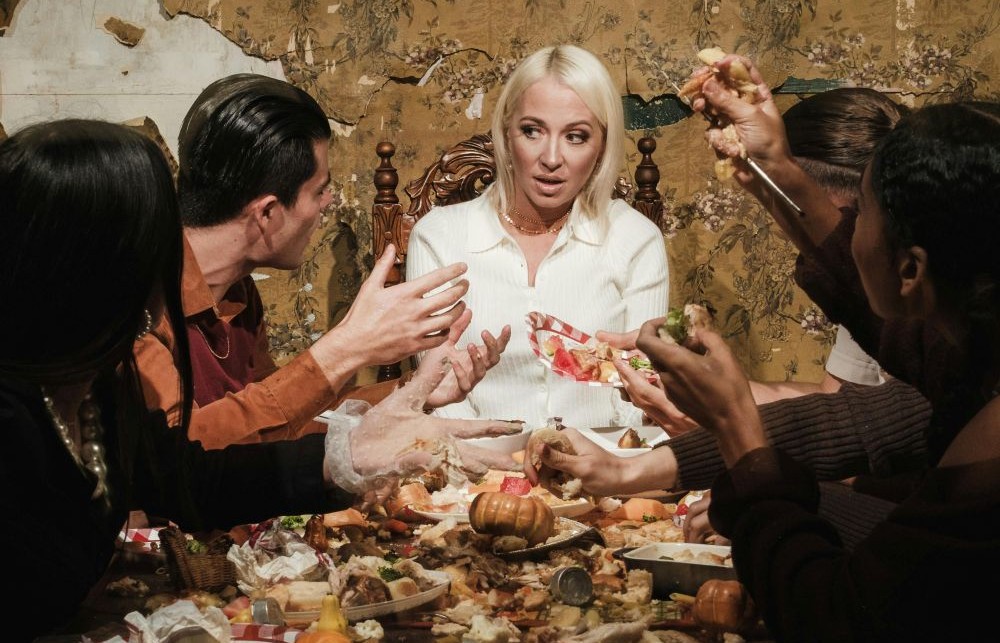We’ve all been there—sitting with a friend, recounting the absolute injustice of a situation, expecting full support, only to be met with a hesitant, “Well… have you considered that maybe you might have played a part in this?” Cue dramatic gasp. Me? The drama? Never.
Except… maybe.
It’s easy to spot toxicity in others. That coworker who never takes accountability? The friend who always plays the victim? The partner who constantly stirs the pot? Oh, we can diagnose their issues in a heartbeat. But when it comes to looking in the mirror? That’s where things get a little tricky.
Signs You Might Be the Drama
Before you get defensive, remember: We’ve all had our moments. No one is immune to problematic behaviors. The key is recognizing them and doing something about it. Here are a few red flags that you might be contributing to the chaos:
- Every relationship fallout has a common denominator: You. If you constantly find yourself in conflict—with coworkers, friends, partners, your barista who swears you ordered a vanilla latte instead of a caramel one—it might be time to examine the pattern.
- You tell the same dramatic story over and over… and your audience keeps shrinking. If your go-to storytelling opener is, “You won’t believe what they did this time!” but people seem less and less invested, it might be worth asking why. Are they tired of hearing about it? Or do they see something you don’t?
- You’re always the hero (or the victim), never the villain. If you look back on your conflicts and every single time you were the misunderstood protagonist, there’s a chance you’re not being fully honest with yourself.
- You struggle with accountability. Do you tend to blame external factors for every mishap? Do apologies feel impossible because you didn’t “mean it that way”? Owning your role in a situation is uncomfortable but necessary.
- People have (gently) called you out. If multiple people have suggested that you reflect on your behavior, there’s a good chance there’s something worth looking into. (If your first response is “I don’t know why people keep saying that!” …we might have found the issue.)
Is It Really You? Or Just a Bad Dynamic?
Before you start spiral-Googling “how to tell if I am a villain in disguise,” let’s pause. Sometimes, relational conflict isn’t about you being toxic, but rather being in an unhealthy dynamic. Ask yourself:
- Do I act this way in all my relationships, or just certain ones? If you only find yourself behaving this way in specific relationships, it could be a reaction to an unhealthy environment rather than a personal trait.
- Do I feel out of control when I react? If your emotions frequently escalate beyond what feels reasonable, there may be underlying issues (trauma responses, emotional dysregulation, etc.) at play.
- Am I open to feedback, or do I immediately get defensive? If you struggle to take even constructive criticism, that could be a sign that accountability isn’t your strong suit.
What to Do If You Are the Problem (Spoiler: It’s Not the End of the World)
First things first: Congrats! Recognizing it is the hardest part. Now, let’s talk about how to break toxic patterns without drowning in self-loathing.
- Pause Before Reacting. If drama seems to follow you, practice taking a beat before responding. Ask yourself, “Am I reacting to this situation, or am I bringing in past baggage?”
- Start Listening More. If you notice yourself talking over people or dismissing their perspective, make an effort to truly hear them out.
- Apologize Without Excuses. “I’m sorry if you felt that way” isn’t an apology. “I’m sorry for how I acted, and I see how that hurt you” is. See the difference?
- Get Comfortable with Discomfort. Growth isn’t fun. Taking accountability sucks sometimes. But leaning into that discomfort is how we become better people.
- Consider Therapy. If you find yourself in the same toxic cycles, therapy can help you identify why and give you tools to break free.
Final Thoughts
Nobody is the hero of their story 100% of the time. We all have blind spots, bad habits, and knee-jerk reactions that don’t always serve us (or others) well. The good news? It’s normal to be the source of some drama sometimes—it doesn’t make you a bad person. But if you refuse to recognize your role in the chaos, that’s where the real problem lies.
So, next time you find yourself at the center of chaos, take a step back and ask: Wait… am I the drama? If the answer is yes, take a deep breath, own it, and do better. You got this.
Need help working through these patterns? Reach out today to schedule an appointment, and let’s tackle it together. You don’t have to navigate this alone.
